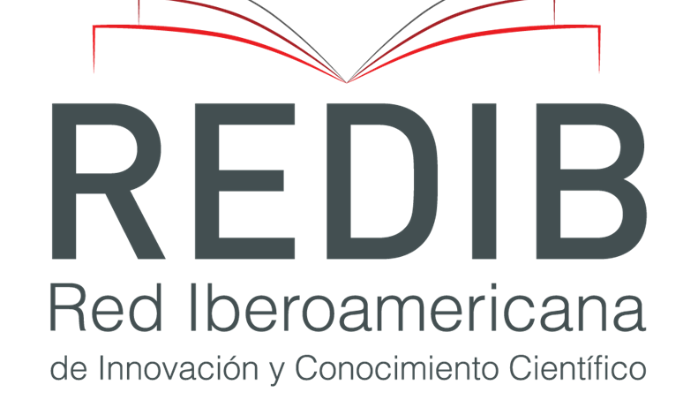Adopción de la tecnología verde y su influencia en la conducta ambiental de los estudiantes de la universidad nacional de Juliaca, en el año 2023
DOI:
https://doi.org/10.47796/ing.v8i00.1343Abstract
El fortalecimiento de la cultura ambiental en las instituciones de educación superior requiere comprender el papel de la tecnología verde en la integración de prácticas sostenibles. El objetivo del estudio fue determinar la correlación entre su adopción y la conducta ambiental en estudiantes universitarios. Se aplicó un diseño correlacional a una muestra probabilística de 340 estudiantes, evaluada mediante un cuestionario Likert por dimensiones con alta consistencia interna (α > 0,90). Los puntajes se integraron en índices globales y se clasificaron en niveles bajo, medio y alto mediante baremos estadísticos. El análisis incluyó estadísticos descriptivos y correlaciones Rho de Spearman. Los resultados mostraron que la adopción de tecnología verde se concentró principalmente en niveles medios (90,3 %). Ambas variables mostraron una correlación positiva y moderada (ρ = 0,301, p < 0,001). La actividad digital sostenible obtuvo la asociación más elevada con la conducta ambiental (ρ = 0,467), seguida de la eficiencia energética (ρ = 0,325), el ahorro energético (ρ = 0,277) y la reducción de elementos tóxicos (ρ = 0,257). Las variables académicas no presentaron relaciones significativas. Estos hallazgos, resaltan la importancia de promover políticas institucionales que fortalezcan el uso responsable de tecnologías verdes en el ámbito universitario.
Downloads
References
Ajzen, I. (1991). The theory of planned behavior. Organizational Behavior and Human Decision Processes, 50(2), 179–211. https://doi.org/10.1016/0749-5978(91)90020-T
Amérigo, M., García, J. A., y Côrtes, P. L. (2017). Analysis of environmental attitudes and behaviors: An exploratory study with a sample of Brazilian university students. Ambiente & sociedade, 20(3), 1–20. https://doi.org/10.1590/1809-4422asoc300r1v2032017
Bronfman, N. C., Cisternas, P. C., López-Vázquez, E., de la Maza, C., y Oyanedel, J. C. (2015). Understanding attitudes and pro-environmental behaviors in a Chilean community. Sustainability, 7(10), 14133–14152. https://doi.org/10.3390/su71014133
Daniel, W., y Cross, C. (2018). Biostatistics: A foundation for analysis in the health sciences (10.ª ed.). Wiley. https://faculty.ksu.edu.sa/sites/default/files/145_stat_-_textbook.pdf
Du, J., y Pan, W. (2021a). Examining energy saving behaviors in student dormitories using an expanded theory of planned behavior. Habitat International, 107, 102308. https://doi.org/10.1016/j.habitatint.2020.102308
Du, J., y Pan, W. (2021b). Diverse occupant behaviors and energy conservation opportunities for university student residences in Hong Kong. Building and Environment, 195, 107730. https://doi.org/10.1016/j.buildenv.2021.107730
Effendi, M. H. A. M., y Tun Ismail, W. N. A. (2025). The impact of environmental responsibility on the wellbeing of university students. Planning Malaysia Journal, 23(1), 415–427. https://doi.org/10.21837/pm.v23i35.1688
Estrada, E. G., Huaypar, K., y Gallegos, N. (2020). Conductas ambientales en estudiantes de la Universidad Nacional Amazónica de Madre de Dios, Perú. Ciencia Amazónica, 8(2), 253–264. https://doi.org/10.22386/ca.v8i2.301
Estrada-Araoz, E. G., Gallegos-Ramos, N. A., Paredes-Valverde, Y., Quispe-Herrera, R., y Mori-Bazán, J. (2023). Examining the relationship between environmental education and pro-environmental behavior in regular basic education students: A cross-sectional study. Social Sciences, 12(5), 307. https://doi.org/10.3390/socsci12050307
Field, A. (2018). Discovering statistics using IBM SPSS Statistics (5.ª ed.). Sage edge. https://goo.su/ftVcVaF
Findler, F., Schönherr, N., Lozano, R., Reider, D., & Martinuzzi, R.-A. (2018). The impacts of higher education institutions on sustainable development. International Journal of Sustainability in Higher Education, 20(1), 23–38. https://doi.org/10.1108/IJSHE-07-2017-0114
Fu, L., Zhang, Y., Xiong, X., y Bai, Y. (2017). Pro-environmental awareness and behaviors on campus: Evidence from Tianjin, China. Eurasia Journal of Mathematics, Science and Technology Education, 14(1), 427–445. https://doi.org/10.12973/ejmste/77953
George, D., y Mallery, P. (2019). IBM SPSS Statistics 26 step by step: A simple guide and reference (16.ª ed.). Routledge. https://doi.org/10.4324/9780429056765
Gong, X., Zhang, J., Zhang, H., Cheng, M., Wang, F., y Yu, N. (2020). Internet use encourages pro-environmental behavior: Evidence from China. Journal of Cleaner Production, 256, 120725. https://doi.org/10.1016/j.jclepro.2020.120725
Grybauskas, A., Stefanini, A., y Ghobakhloo, M. (2022). Social sustainability in the age of digitalization: A systematic literature review on the social implications of Industry 4.0. Technology in Society, 70, 101997. https://doi.org/10.1016/j.techsoc.2022.101997
Hernández-Sampieri, R., y Mendoza, C. (2018). Metodología de la investigación: Las rutas cuantitativa, cualitativa y mixta. McGraw-Hill. http://repositorio.uasb.edu.bo/handle/20.500.14624/1292
Intergovernmental Panel on Climate Change [IPCC]. (2021). Climate change 2021: The physical science basis. Contribution of Working Group I to the Sixth Assessment Report of the Intergovernmental Panel on Climate Change (V. Masson-Delmotte, P. Zhai, A. Pirani, S. L. Connors, C. Péan, S. Berger, N. Caud, Y. Chen, L. Goldfarb, M. I. Gomis, M. Huang, K. Leitzell, E. Lonnoy, J. B. R. Matthews, T. K. Maycock, T. Waterfield, O. Yelekçi, R. Yu, y B. Zhou, Eds.). Cambridge University Press. https://doi.org/10.1017/9781009157896
Kollmuss, A., y Agyeman, J. (2002). Mind the gap: Why do people act environmentally and what are the barriers to pro-environmental behavior? Environmental Education Research, 8(3), 239–260. https://doi.org/10.1080/13504620220145401
Lozano, R., Merrill, M. Y., Sammalisto, K., Ceulemans, K., y Lozano, F. J. (2017). Connecting competences and pedagogical approaches for sustainable development in higher education: A literature review and framework proposal. Sustainability, 9(10), 1889. https://doi.org/10.3390/su9101889
Mohammadi, Y., Monavvarifard, F., Salehi, L., Movahedi, R., Karimi, S., y Liobikienė, G. (2023). Explaining the sustainability of universities through the contribution of students’ pro-environmental behavior and the management system. Sustainability, 15(2), 1562. https://doi.org/10.3390/su15021562
Petrova, Y., Temirkhanova, Z., Saidova, G., Isaeva, R., y Gadzhieva, N. (2023). Language and emotional domains: the environmentally sustainable behaviour of digital youth. E3S web of conferences, 381, 02040. https://doi.org/10.1051/e3sconf/202338102040
Qi, S., Niu, M., y Guan, Z. (2025). Promoting pro-environmental behavior among university students through sustainability education and institutional support: A mediated moderation model. Sustainability, 17(22), 10069. https://doi.org/10.3390/su172210069
Razali, N. M., y Wah, Y. B. (2011). Power comparisons of Shapiro–Wilk, Kolmogorov–Smirnov, Lilliefors and Anderson–Darling tests. Journal of Statistical Modeling and Analytics, 2(1), 21–33. https://www.nrc.gov/docs/ml1714/ml17143a100.pdf
Ribeiro, J. M., Hoeckesfeld, L., Dal Magro, C. B., Favretto, J., Barichello, R., Lenzi, F. C., Secchi, L., Montenegro de Lima, C. R., y Salgueirinho Osório de Andrade Guerra, J. B. (2021). Green Campus Initiatives as sustainable development dissemination at higher education institutions: Students’ perceptions. Journal of Cleaner Production, 312(127671), 127671. https://doi.org/10.1016/j.jclepro.2021.127671
Shafiei, A., y Maleksaeidi, H. (2020). Pro-environmental behaviour of university students: Application of protection motivation theory. Global Ecology and Conservation, 22, e00908. https://doi.org/10.1016/j.gecco.2020.e00908
Teng, J., Xiao, X., Zhang, N., y Yang, S. (2025). Impact of internet use on pro-environmental behaviour mediated by environmental concern. Scientific Reports, 15(1), 5899. https://doi.org/10.1038/s41598-025-90445-x
Torroba-Díaz, M., Bajo-Sanjuan, A., Callejón-Gil, Á. M., Rosales-Pérez, A., y López-Marfil, L. (2023). Environmental behavior of university students. International Journal of Sustainability in Higher Education, 24(7), 1489–1506. https://doi.org/10.1108/IJSHE-07-2022-0226
UNEP. (2023). Emissions Gap Report 2023: Broken record—Temperatures hit new highs, yet world fails to cut emissions (again). United Nations Environment Programme. https://www.unep.org/resources/emissions-gap-report-2023
UNESCO. (2014). Shaping the future we want: UN Decade of Education for Sustainable Development (2005–2014) final report. United Nations Educational, Scientific and Cultural Organization. https://unesdoc.unesco.org/ark:/48223/pf0000230171
UNESCO. (2020). Education for Sustainable Development: A roadmap. United Nations Educational, Scientific and Cultural Organization. https://doi.org/10.54675/YFRE1448
WHO. (2024). Ambient (outdoor) air pollution. World Health Organization. https://www.who.int/news-room/fact-sheets/detail/ambient-(outdoor)-air-quality-and-health
Zhang, J., y Cao, A. (2025). The psychological mechanisms of Education for Sustainable Development: Environmental attitudes, self-efficacy, and social norms as mediators of pro-environmental behavior among university students. Sustainability, 17(3), 933. https://doi.org/10.3390/su17030933
Downloads
Published
How to Cite
Issue
Section
License
Copyright (c) 2025 Jesús Arias Escobar, Leopoldo Wenceslao Condori Cari, Gale Ronaldo Herrera Rodríguez, Edgardo Martin Figueroa Donayre, Mateo Quispe Capajaña

This work is licensed under a Creative Commons Attribution 4.0 International License.








